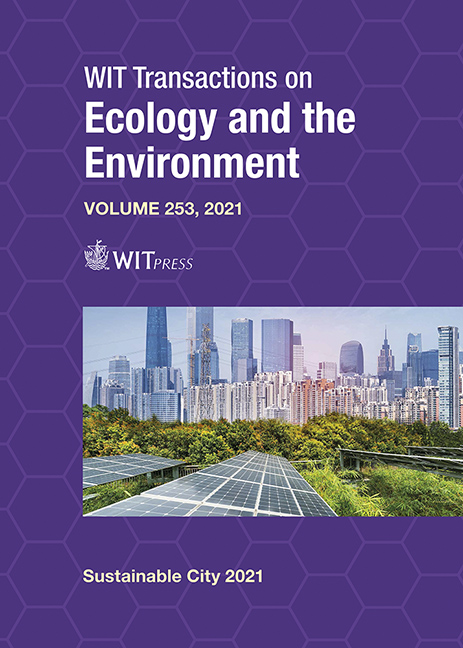POTENTIAL THREATS OF PERI-URBAN TUONG-MANGO PRODUCTION AND POLICY IMPLICATIONS FOR HEALTHY AGRICULTURE FOR HEALTHY ECOSYSTEMS
Price
Free (open access)
Transaction
Volume
253
Pages
12
Page Range
617 - 628
Published
2021
Size
394 kb
Paper DOI
10.2495/SC210501
Copyright
Author(s)
TRUONG HONG VO TUAN KIET, PHAM THI NGUYEN, NGUYEN THI KIM THOA
Abstract
Understanding both positive and negative influences of urban agriculture (UA) could encourage countries to have suitable strategies in UA development, especially in developing country’s cities. The study used the environmental impact quotient (EIQ) model to identify potential risks of agro-inputs usage on urban ecosystems (human and ecology). The paper concentrates on influencing agrochemicals on farmers, consumers and ecosystems in Tuong-mango cultivation in the peri-urban area of southern Vietnam. The results show that nitrogen fertilizer plays an important role in mango production but it can cause nitrate poisoning in the surrounding community, and is especially dangerous to infants, pregnant women (birth defects and miscarriages) and adults (stomach and esophageal cancers). In addition, the fungicide makes up the highest proportion of the total agro-inputs usage. The findings indicate that active ingredients of the paclobutrazol, mancozeb, probineb, ziram and carbenazim are high in Tuong-mango cultivation in southern Vietnam. Paclobutrazol and ziram are category II (moderately hazardous), and the mancozeb, probineb, carbendazim are in the list of category U (unlikely to present acute hazard when in regular use). Besides, the ecosystem EIQ triple the farmer EIQ, are fivefold the consumer EIQ for the seasons 1, 2, and 3. The field use EIQ average value of season 1 is the highest, followed by season 2, and season 3 is the lowest. For policy solution, stakeholder reference and policy dialogue should be discussed regularly before UA is carried out in cities. Sustainable progression of UA in cities require coordination between health, agriculture and environmental departments, education and training. Moreover, urban farmers need to be supported in technical advice, training, credit access, and collection economic development.
Keywords
Tuong-mango, peri-urban, agro-inputs, ecosystem





